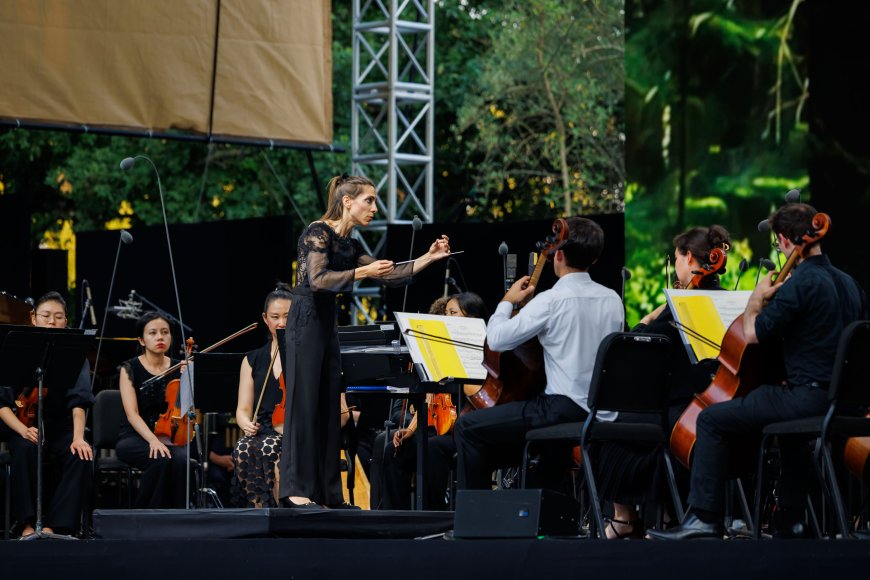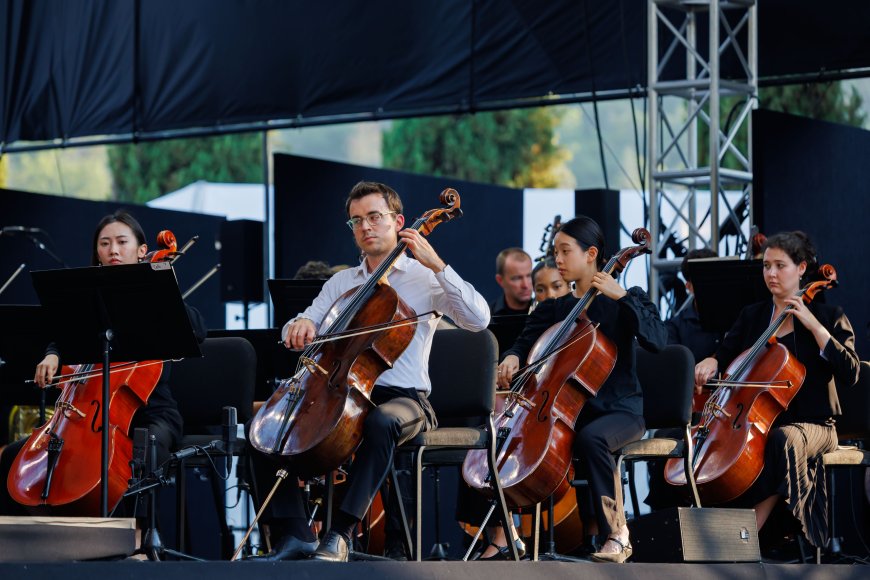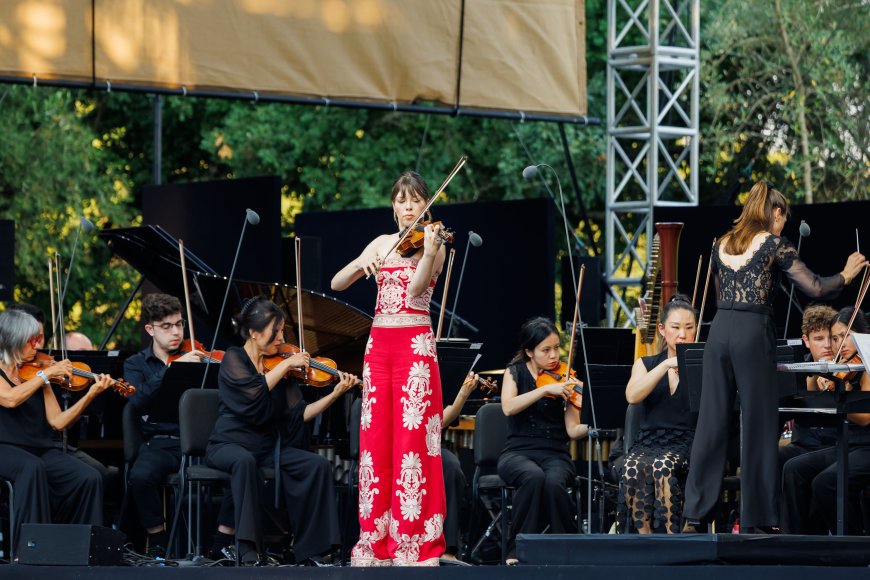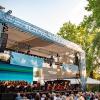
Variety was the spice at this year’s Festival Napa Valley, to entertaining effect that favored performers, composers, and audiences alike.
Consider the Festival’s fifth annual art songs program, presented in downtown Napa on Friday, July 11 at the Ecolab Theatre. That’s one of two performance venues at the Culinary Institute of America’s Copia facility, fittingly named for the Roman goddess of wealth and plenty. There were plenty of folk attending an eclectic recital anchored by soprano Alexandra Armantrading, baritone Lester Lynch, and pianist Kevin Korth, performing repertoire ranging from J.S. Bach and Franz Schubert to contemporary composers Luna Pearl Woolf and Gordon Getty, both of whom were in the audience.
Armantrading, in her first Festival recital, soloed in songs by Alban Berg, Samuel Barber, Francis Poulenc, and Bach, and partnered Lynch in operatic selections by Getty and Verdi. She projected powerfully and confidently, qualities shared by Lynch, who opened the program with Schubert’s “An die Musik” and later soloed in a pair of selections from Gustav Mahler’s Rückert-Lieder. In Barber’s setting of Matthew Arnold’s “Dover Beach,” Lynch’s virtuosic display of dynamics and dramatic intention was supported by an artful string quartet.

As with many vocal recitals, the music served to convey servings of superior poetry, in a variety of languages. “How Shall I Learn?,” an early sonnet by Getty (who has penned his own librettos), was heard here in a world premiere setting for which Woolf was commissioned. As always, Korth showed himself a symbiotically attentive and nuanced accompanist, adaptable to many musical genres. He elegantly partnered violinist René Mandel in a Bach aria transcription, and he helped usher the assembled off to lunch in the concert’s encore, Rodgers & Hammerstein’s “If I Loved You.”
The light and the warmth were lingering on into early evening as attendees filled the outdoor seating at the Charles Krug Winery in St. Helena for Uytengsu Family Opening Night. Onstage, the Festival Orchestra Napa was conducted by Clelia Cafiero, winner of the Festival’s Joel Revzen Conducting Prize this year. She was joined by mezzo-soprano Joyce DiDonato, arrayed in a crimson gown, who won favor from her first clarion phrasing of “Cruda sorte” from Gioacchino Rossini’s L’Italiana in Algeri.
This was followed by Woolf’s orchestral arrangement of a pair of Getty’s settings of Emily Dickinson poems, from his 1981 work The White Election. Woolf attractively showcased the sometimes-surprising key changes in “The Going From a World We Know” rather like shifts in theatrical lighting. “Beauty Crowds Me” suspended long luminous tones in the evening air.

DiDonato went on to display her supple technique and sassy persona in the Habanera from Georges Bizet’s Carmen and Agustin Lara’s “Granada,” with purposeful pacing from Cafiero and faultless execution by the orchestra.
Violinist Tessa Lark then took to the stage for a stunning performance of He Zhanhao and Chen Gang’s Butterfly Lovers’ Concerto. Lark was a compelling storyteller through the work’s episodes of romance, longing, contemplation, and jubilation. Her sure bowing and perfection of tone effectively showcased the piece’s crystalline pentatonic melodies, and the incorporation of techniques and ornamentations of Chinese string instruments fused fascinatingly with Lark’s second accomplishment as a champion bluegrass fiddler in her home state of Kentucky.
I welcomed the performance of Igor Stravinsky’s Firebird Suite as the month’s second serving of fireworks, harbingered by recorded bird sounds (echoed by real-life avians) and a cinematic projected backdrop of a slow pan through thick forest branches. The composition drew gorgeous contributions from first chair oboist Kevin Pearl and principal cellist Rainer Eudeikis, who’d also handsomely partnered Lark. Cafiero moved through Stravinsky’s transcendent tale with attentiveness and command, awakening the audience to the magic of nearby nature before their journey back through the vineyard beneath a recently full moon.




